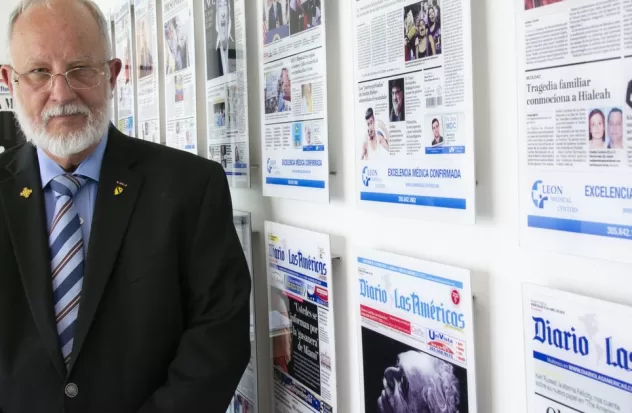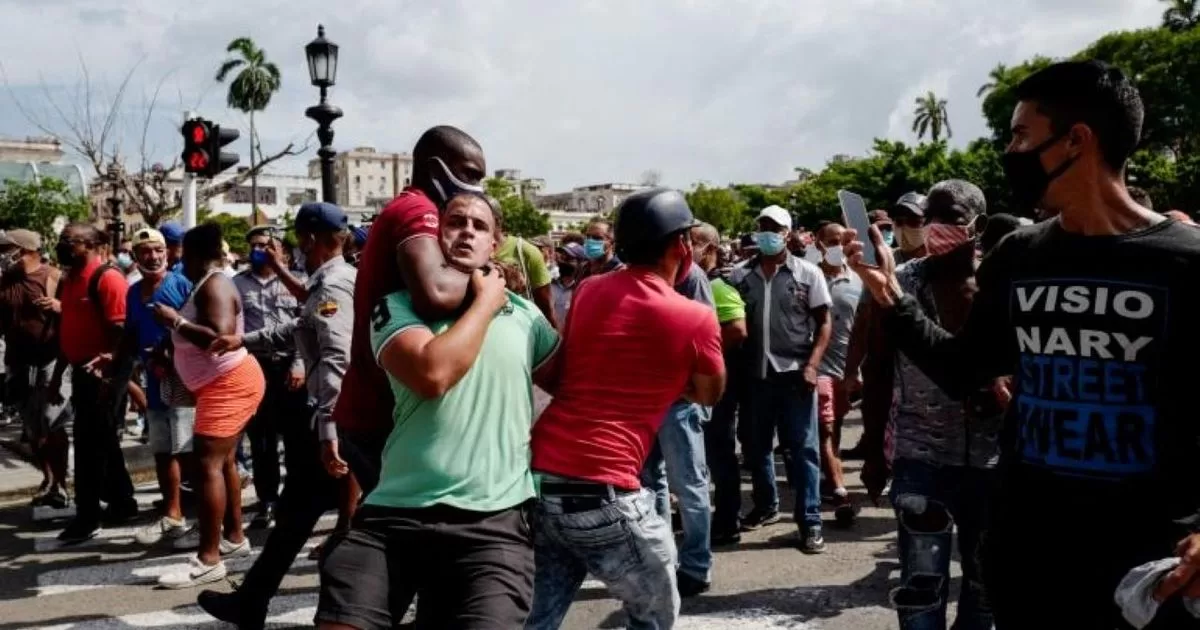This is how Octavio Pérez, a retired colonel of the US Armed Forces and former Intelligence officer, expresses himself, who believes that “in reality, neither Cuba, nor Nicaragua, nor Venezuela, as independent countries, are a threat to the United States alone.”
“Now, if there is a military transfer between them and they become a place where missiles can be prepositioned, they would be a threat like (Cuba) was in the crisis of October 1962,” the expert recalled.
intelligence system
The retired military officer pointed out DIARIO LAS AMERICAS that in this context it can be considered at some point a strategic problem for the United States, with implications for its national security.
However, the expert clarifies that in the US there is an intelligence system that can detect any movement “and I highly doubt that the Russians are going to try to project themselves, because they have no way to do so.”
He added that Russia does not have a Navy or an Aviation to be able to bring troops and preposition them in all these places because “it has lost more than 300,000 soldiers in its war with Ukraine and more than 8,000 tanks and armored vehicles that will take five or seven years to replace.” .
Russian Vice Foreign Minister Sergei Ryabkov, one of the highest diplomats in Vladimir Putin’s government, warned in 2022 that a Russian military deployment in Cuba and Venezuela could not be ruled out if tensions with the United States increased. In response to these statements, retired military officer Octavio Pérez was blunt: “Russia is not in a position to battle with the United States.”
Now, he is concerned that the harassment comes from people “infiltrating the border to carry out terrorist acts, which would destroy the American economy and that is where the real danger to the national security of the United States lies.”
The international game
Cuba, Venezuela and Nicaragua “are prostrate as chess pawns in the Russian international game.” In his opinion, this movement is accomplished by Cuba offering soldiers for its wars or any type of propaganda to teach the Russians that there are people mobilizing for their cause.
In Venezuela, we have Maduro running for future elections, supposedly free and repressing despite all the moves the American government made under this administration, he added.
“And Nicaragua also with some brigades of Russians, supposedly helping them maintain order. That is, all this is part of the Russian chess game that historically has wanted to have influence in the area of interest of the United States in the region and where it tries to expand its domain,” said the retired military officer.
Chinese investments
When referring to China, Colonel Octavio Pérez said that this Asian country is already almost ‘owner’ of Latin America, “where it has managed to buy consciences with many investments and has left many of these governments in debt.”
Chinese resources have been directed towards a large number of infrastructure renovation projects such as bridges, roads and train lines, among others.
He added that the Chinese “have the whole world in their pocket, they even have the votes in international forums in the United Nations and in the Court of The Hague.”
In the case of Iran, he said that this country “no longer requires a passport for Cubans and that goes without saying what they have been doing in Venezuela helping to extract uranium, cobalt and various strategic minerals.
When asked about international forums and how they pronounce on the humanitarian emergency in Venezuela or in any country in the region, he said that these forums are not going to condemn the fact that a large number of people have died in the attempt to leave their countries or that people are being run over in their own nations. “No one is going to bell the cat. Nobody remembers the people.”
World geopolitics
He insists that in world geopolitics “Cuba does not represent much and Nicaragua even less, but Venezuela does because it has a large oil reserve, although because it is classified as heavy and extra heavy it needs refining, precisely at the hands of the United States.”
“Today the refineries in the United States have the potential to do that and for another country to exploit Venezuelan oil they would have to come or set up refineries in their countries because the technology exclusively for Venezuelan crude oil was made here,” insisted the expert.
In conclusion, he indicated that Venezuela is strategically important for its natural resources. “So, in world geopolitics, they do remember that country for its oil and not for the people who have died trying to reach other destinations or who are imprisoned, nor for the ecological disaster in Bolívar, south of “Venezuela where precious minerals such as coltan and gold are extracted, especially by the Iranians.”
The soft power
Soft power is the ability of a State to persuade other countries, avoiding the use of force or coercion, using more subtle means, such as its culture, its social model or its political values. It is a term coined by Joseph Nye, US Undersecretary of Defense for International Security Affairs (Clinton administration).
Octavio Pérez locates US soft power at various levels. He recalled that the Americans were not the same with the American Fruit Company and Texaco in 1950-69 when “the US had a larger workforce” in the region. Soft power with influence.
Then the Japanese brought their factories in the years 1968-98 to all of Central and South America with Sony, Sanyo and Toshiba, “all to lower the cost of their manufacturing and freight to their main customer, the United States.”
The Koreans followed and replicated the story. And now it’s the Chinese all over America. “But everyone knows the reference point and quality of the United States, they want everything that is made in this country.”
The expert made the observation that the Americans created the maquiladora only in Mexico and did not continue developing it towards the south.
“We must also recognize the insurrections in El Salvador, Nicaragua, changes of government in Ecuador, Bolivia and Venezuela that influenced investments,” he said.
To signify the loss of influence of the United States in the region where currently “there is a soft power with a low level of influence” and defined the current status with a metaphor, “the US now picks the short mangoes, not the biggest and prettiest ones.” .
Source: Analysis by Octavio Pérez, retired colonel of the US Armed Forces and former Intelligence officer.


